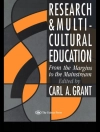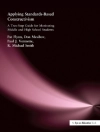Before 9/11, films addressing torture outside of the horror/slasher genre depicted the practice in a variety of forms. In most cases, torture was cast as the act of a desperate and depraved individual, and the viewer was more likely to identify with the victim rather than the torturer. Since the terrorist attacks of September 11, 2001, scenes of brutality and torture in mainstream comedies, dramatic narratives, and action films appear for little other reason than to titillate and delight. In these films, torture is devoid of any redeeming qualities, represented as an exercise in brutal senselessness carried out by authoritarian regimes and institutions.
This volume follows the shift in the representation of torture over the past decade, specifically in documentary, action, and political films. It traces and compares the development of this trend in films from the United States, Europe, China, Latin America, South Africa, and the Middle East. Featuring essays by sociologists, psychologists, historians, journalists, and specialists in film and cultural studies, the collection approaches the representation of torture in film and television from multiple angles and disciplines, connecting its aesthetics and practices to the dynamic of state terror and political domination.
قائمة المحتويات
Screening Torture: An Introduction
Part I. Torture and the Implications of Masculinity
1. Countering the Jack Bauer Effect: An Examination of How to Limit the Influence of TV’s Most Popular, and Most Brutal, Hero
2. Mel Gibson’s Tortured Heroes: From the Symbolic Function of Blood to Spectacles of Pain
3. It’s a Perfect World: Torture, Confession, and Sacrifice
Part II. Torture and the Sadomasochistic Impulse
4. Lust, Caution: Torture, Sex, and Passion in Chinese Cinema
5. The Art of Photogenic Torture
6. Beyond Susan Sontag: The Seduction of Psychological Torture
7. Stanley Kubrick’s A Clockwork Orange as Art Against Torture
Part III. Confronting the Legacies of Torture and State Terror
8. ‘Accorded a Place in the Design’: Torture in Post-Apartheid Cinema
9. Confessing Without Regret: An Israeli Film Genre
Part IV. Torture and the Shortcomings of Film
10. Movies of Modern Torture as Convenient Truths
11. Torture at the Limit of Politics
12. Doing Torture in Film: Confronting Ambiguity and Ambivalence
13. Documenting the Documentaries on Abu Ghraib: Facts Versus Distortion
List of Contributors
Index
عن المؤلف
Michael Flynn is associate professor of psychology at York College, City University of New York, and associate director of the Center on Terrorism at John Jay College of Criminal Justice. He is the coeditor, with Charles B. Strozier, of Genocide, War, and Human Survival; Trauma and Self; and The Year 2000: Essays on the End; and, with David C. Brotherton, of Globalizing the Streets: Cross-Cultural Perspectives on Youth, Social Control, and Empowerment.Fabiola F. Salek is the chair of the Department of Foreign Languages, ESL, and Humanities and coordinator of women’s studies at York College, City University of New York. She is also a research fellow at the Center on Terrorism at John Jay College of Criminal Justice. Her research focuses on film and contemporary culture and their relationship to human rights, immigration, gender, and the construction of identity and nationality.












